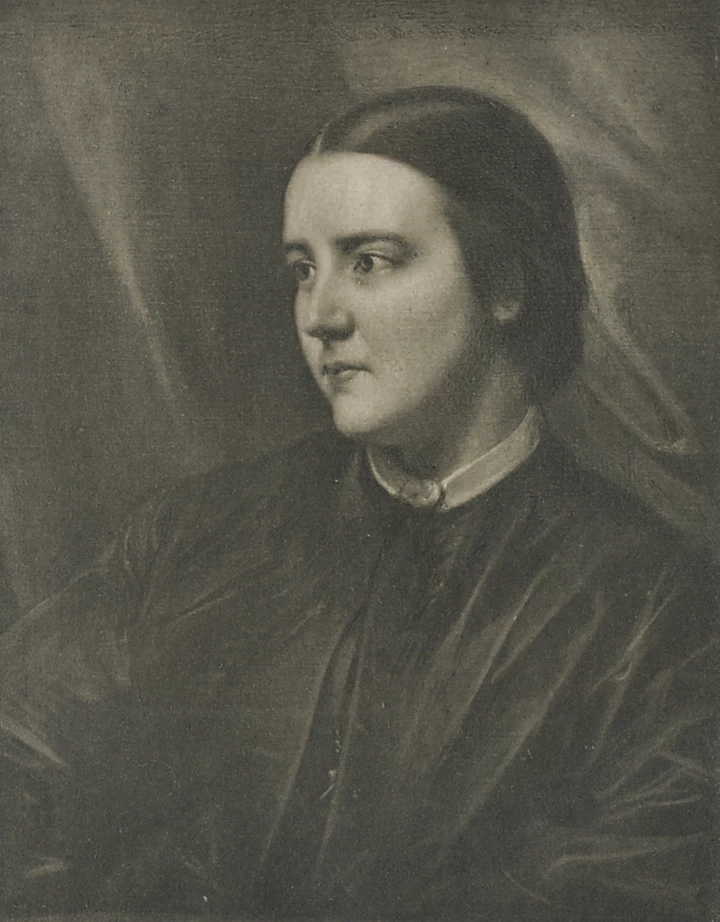Sophia Jex-Blake

Sophia Jex-Blake, aged 25. Margaret Todd [Public domain], via Wikimedia Commons
There is no doubt that Jex-Blake was a pioneer for women’s rights. Her leading role in the movement that saw the first women being given the right to a university education in Edinburgh speaks volume about her remarkable character as well as the strength and determination she demonstrated throughout her life.
She was born in the town of Hastings in 1840 where she received a private education. When it came for Jex-Blake to attend college, she faced great opposition from her parents. They held strong beliefs that it wasn’t appropriate for a woman to pursue further education and so as a result, Jex-Blake found herself an alternative to attending college; she began tutoring maths. However, she was only allowed to do so on the grounds that she didn’t accept a salary.
In 1865, Jex-Blake moved to America where she sought to learn more about education for women. It was here that she crossed paths with Dr Lucy Sewell, a health and social reform activist and hospital physician in New England Hospital for Women. Arguably, it was this encounter that drove Jex-Blake’s quest to gain a medical education and become a doctor. Her first attempt at applying to medical school in Harvard was unsuccessful, solely based on the fact that she was a woman. She then made the decision to apply for a place at a new medical school in New York, which was being set up by Elizabeth Blackwell, another pioneer for women’s right to study medicine and the first woman to receive a medical degree in the US and to be registered by the GMC. However, the passing of Jex-Blake’s father meant that she had to return to the UK before she was able to register at Blackwell’s school.
Due to prospects of gaining entry to a medical school looking unlikely at home, Jex-Blake made the decision to turn her efforts towards Edinburgh, where she was initially successful in her application. However, following an appeal by some displeased staff members, the university court decided to rule against her admission, claiming that providing for one woman would be too much hassle for the university. Jex-Blake, however saw an opportunity here to call on other women to join her and so her friends at the Scotsman helped her reach women from all around the country and persuade them to also apply to Edinburgh Medical School, thus rendering the court’s ruling obsolete. Six other women followed Jex-Blake’s lead and thus formed the Edinburgh Seven.
As detailed in the other blog posts, their fight to gain entry the medical school was only the beginning of a very long struggle and the women faced innumerable obstacles during their time in Edinburgh. Eventually, the women had to accept defeat when they found themselves unable to sit the final exams they needed to graduate. Jex-Blake thus moved to London, where she continued with her campaign and helped establish a London School of Medicine for Women. She arguably played a pivotal role in the movement that lead to the Medical Act that stated that anyone, of any gender could gain a medical license.
It was in Berne, Switzerland that Jex-Blake finally received her medical degree. She then travelled to Dublin to sit exams with the College of Physicians, enabling her to practice medicine in the UK, making her one of the first female doctors in Britain. Blake ultimately decided to return to Edinburgh, where she then went about establishing the Edinburgh School of Medicine for Women, the Edinburgh Hospital and Dispensary for Women and Children. (To find out more about what Jex-Blake did after Edinburgh, visit our blog post, “What did Pechey and Jex-Blake do after their Edinburgh studies?”)
There is no doubt that Jex-Blake played a profound and pivotal role in establishing women’s right to an education in the UK. She continued to campaign for women’s suffrage throughout her life and her remarkable resilience and strength is reflected in every part of her story.
Author: Cari O’Rourke
References
https://www.bbc.co.uk/news/uk-scotland-edinburgh-east-fife-46180368
https://en.wikipedia.org/wiki/Elizabeth_Blackwell
https://www.ed.ac.uk/alumni/services/notable-alumni/alumni-in-history/sophia-jex-blake




Recent comments